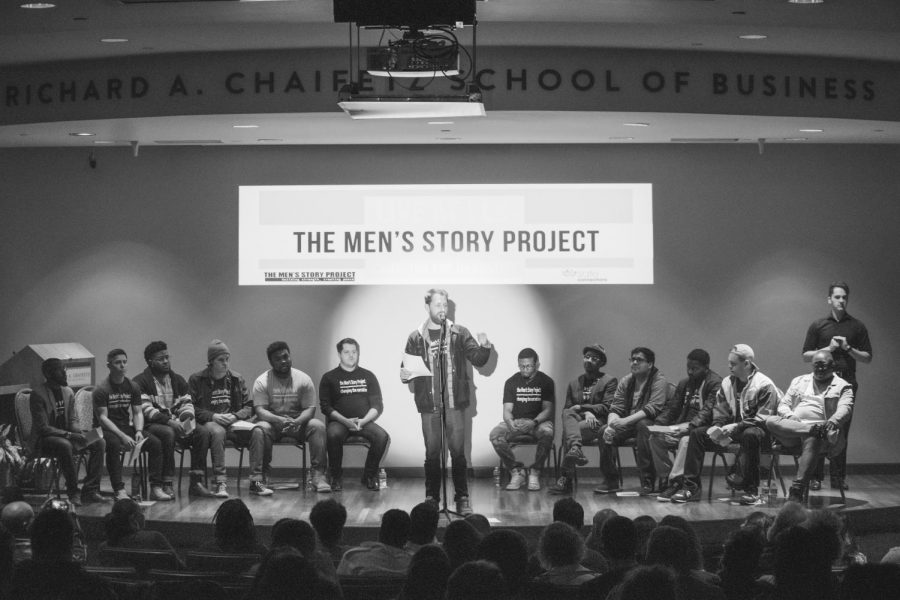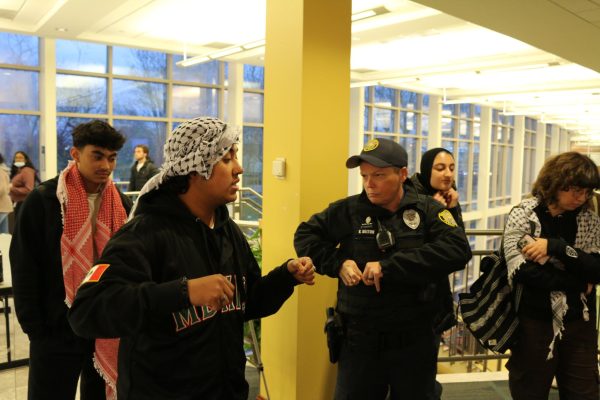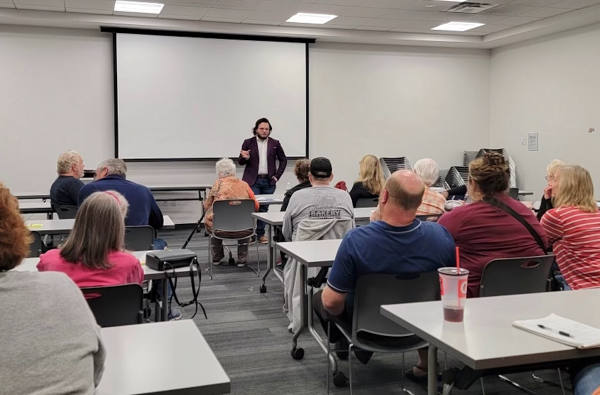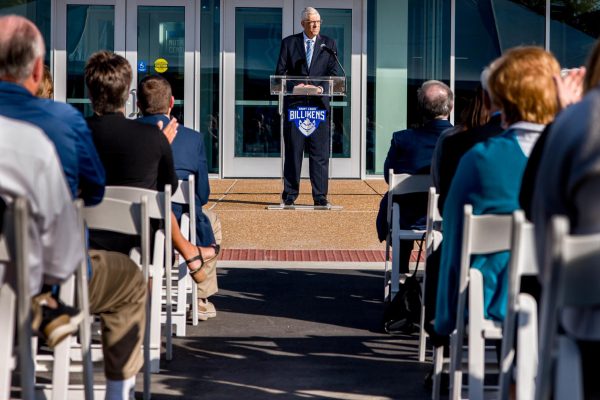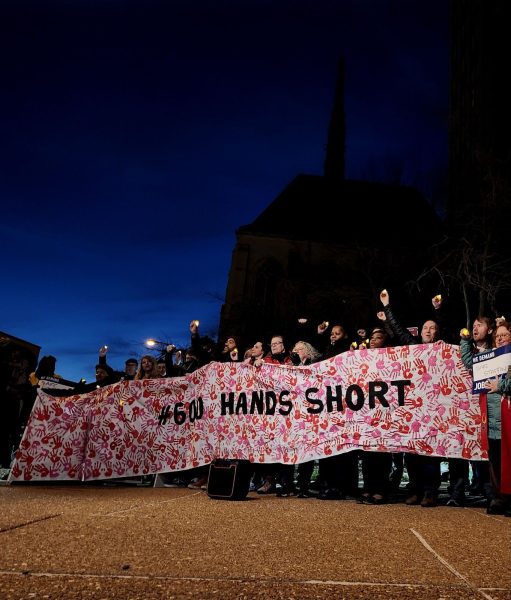MEN’S STORY PROJECT – LIVE at SLU
On Wednesday, the second annual Men’s Story Project was performed in the Chaifetz Business School Auditorium. The performance involves 12 men from the St. Louis area, all from the ages of 19 to 38, who share personal, true stories about their life experiences with masculinity. Each story is told in a unique way, including spoken word, monologue, poetry and even rap. Another show will play on Thursday night in the same venue at 7 p.m., with doors opening 30 minutes before the presentation.
The event was kicked off by the director and producer of the event, James Meinert, and he began by explaining how the Men’s Story Project was started. Meinert gave credit to founder, Jocelyn Lehrer, Ph.D.who was in attendance. Meinert explained that Lehrer “wanted to end violence,” specifically gender-based violence, and her way to do this was through the promotion of healthy masculinities and gender equality.
Some of the topics covered by the speakers included unhealthy and abusive relationships, infidelity, sex abuse, African American masculinity, sexuality and gender identity and more. The presentation was then followed with audience discussion.
Hayden Peterson, a junior studying Philosophy and Urban Poverty Studies was, as he explained, “one of the two SLU students doing it this year.” Peterson was drawn to the Men’s Story Project “because I’m a white, straight, Christian male so I kind of had to fall into the category of the oppressor in almost every scenario,” he said. “But it’s not the case that those identities make me like that, so I thought it might be valuable to try do some work to combat those toxic stereotypes.”
“It is really a blessing how diverse the set of stories are within this group,” Peterson said. “One of the overlapping things throughout all of the stories is the sense of vulnerability; a kind of genuine storytelling that all of these men are opening up about aspects of their life and their story that they probably wouldn’t tell to some of their good friends, and yet they’re telling it to an auditorium of 150 people.”
“In all of these stories we try to show how we can move forward from it,” Peterson said, summarizing the event. “Our hope is that we try to foster more open conversations on what it means to be a man and why it doesn’t have to fit into the toxic stereotypes of masculinity that permeate throughout our culture.”
Your donation will support the student journalists of Saint Louis University. Your contribution will help us cover our annual website hosting costs.


